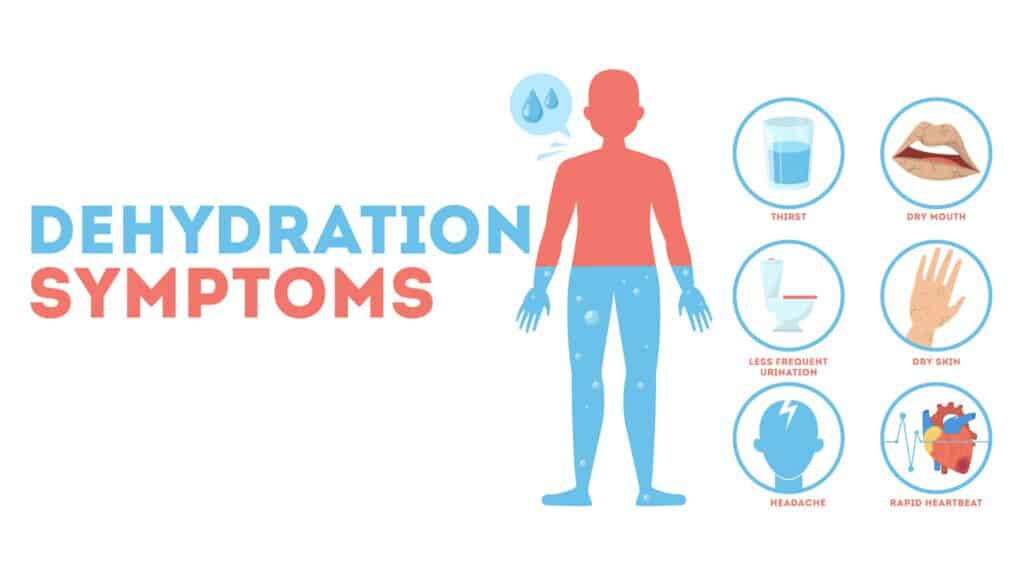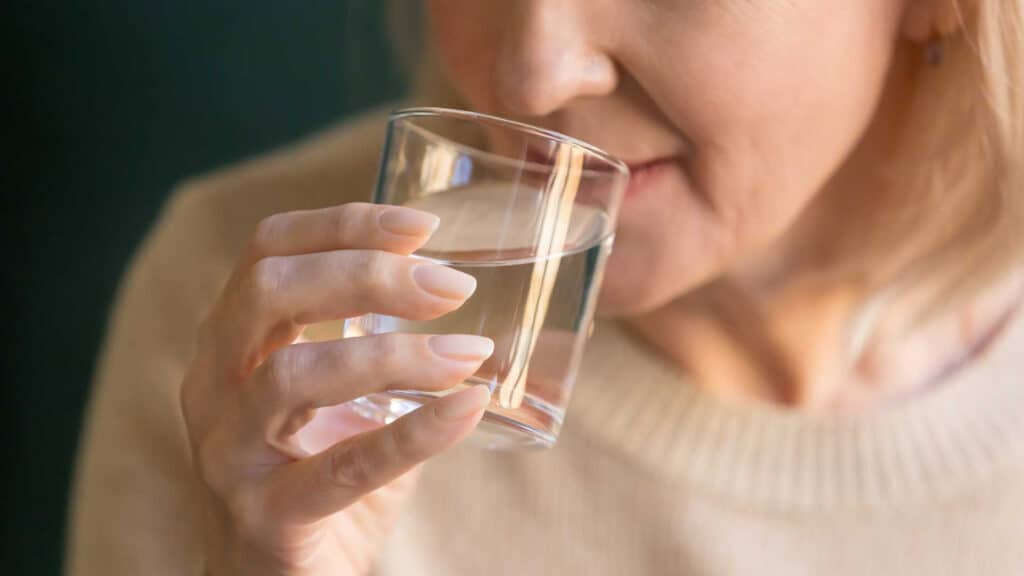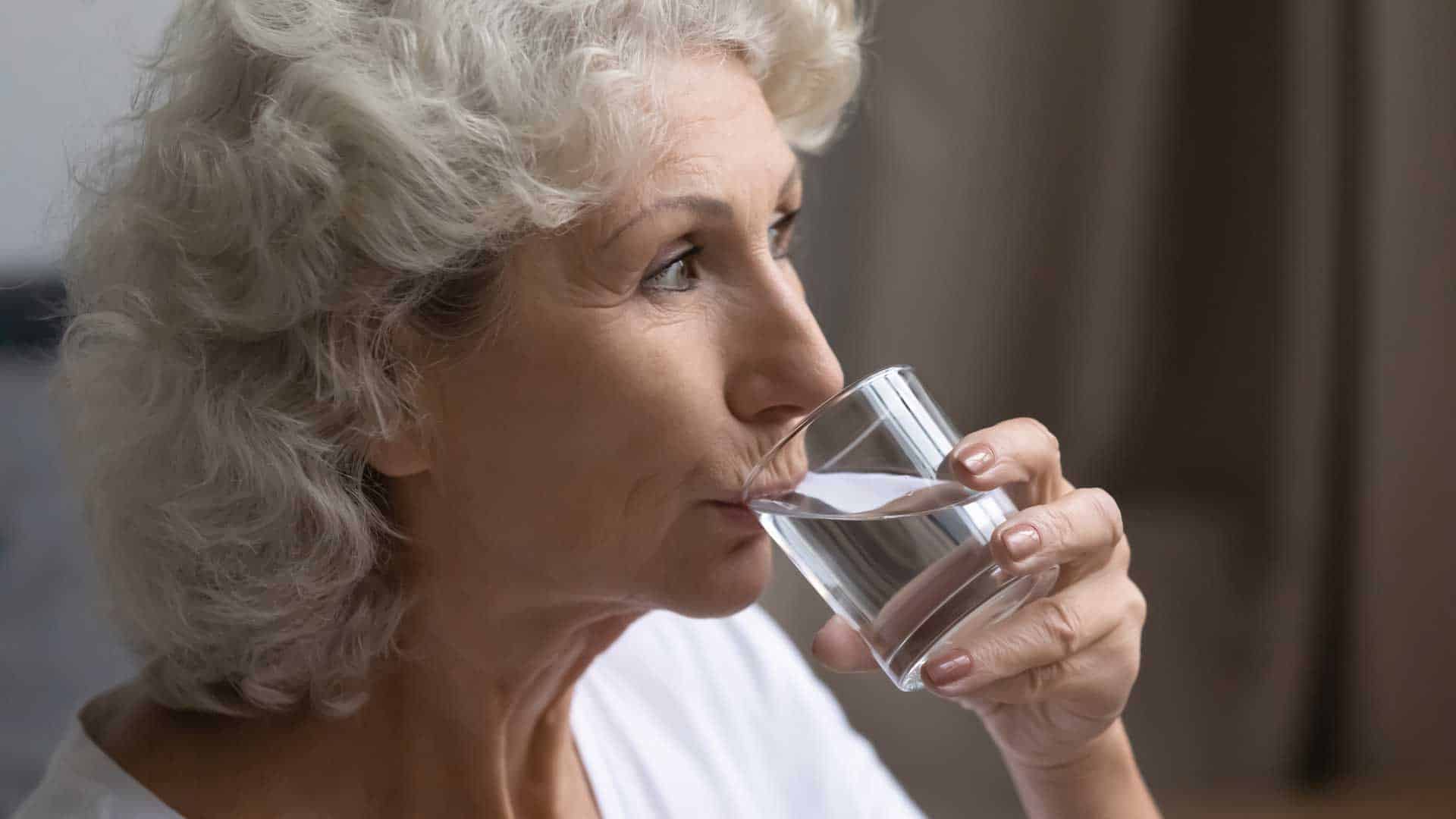Water consumption is essential to maintain good health, as it is an essential nutrient that must be consumed in sufficient quantities on a daily basis. Although sometimes we do not consume what our body needs, especially at some stage of life like old age.
For various reasons, senior adults may not reach this daily goal and trigger a problem of dehydration. A dehydrated senior adult presents some characteristic symptoms that we will detail in this Tenderness blog post, in addition to sharing tips to prevent dehydration in older adults.
What happens when a senior person is dehydrated?
A senior adult dehydrated for a long time, can suffer several consequences that affect their general health. For example, urinary infections or kidney stones. Dehydration worsens the health and the different pathologies suffered by the elderly person.
Dehydration symptoms
The symptoms of dehydration are organized according to their severity. It can be mild or moderate and severe, and can present various symptoms in detail to which you must pay the utmost attention.
- Mild or moderate dehydration: Thirst, tiredness, drowsiness, muscle cramps, headache, lack of elasticity of the skin, little urination.
- Severe dehydration: Lack of urination, rapid breathing, dry and wrinkled skin, confusion, dizziness, increased heart rate, sunken eyes. As very serious, symptoms such as insufficient blood flow, delusions and unconsciousness may appear.

We enlist a better description of some of the most common symptoms that occur in dehydrated elderly:
- Thirst and dry mouth
A dehydrated elderly person has dry mouth and thirst because he does not produce enough saliva. This is noticeable in thick saliva, chapped lips, a dry tongue, and problems speaking, chewing, and/or swallowing. In addition, oral problems such as infections, gum disease or cavities may arise.
- Fatigue
Older people have a reduced sense of thirst, may drink less water and fluids, and become dehydrated more easily. And one of the symptoms of the dehydrated elderly is fatigue or tiredness. The lack of water in the blood produces a drop in blood pressure which in turn causes this symptom.
- Scanty urine
The lack of water in the bloodstream causes the kidneys to filter less blood and therefore produce less urine. The one that is produced will be darker and highly concentrated. If the person already has a kidney problem, the situation can be complicated.
- Muscle cramps
With a lack of fluid in the body, the level of electrolytes in the blood is disturbed. That is, the levels of minerals in the body that control muscle activity are altered, producing cramps and muscle spasms.
- Constipation
The lack of fluid in the body causes problems in intestinal transit and as a consequence constipation. This in turn can trigger other problems or symptoms such as pain and swelling in the abdomen, lack of appetite, cramps, nausea or difficulty urinating.
- Headache
Another symptom in the dehydrated elderly is headache, headaches or migraines. It is possible that the body, to compensate for the lack of fluid, activates mechanisms that reduce the flow of oxygen and blood to the brain, thus producing a headache.
- Dry skin without elasticity
The skin needs hydration to stay in good condition. When the body becomes dehydrated, one of the most visible symptoms is the state of the skin, as it loses elasticity, dries out and can crack.
- Increased heart rate
Dehydration in the elderly can cause heart rhythm disturbances. The lack of water causes the body to not function normally, even causing the appearance of arrhythmias due to alteration of the ions and systemic failure, which can be very serious if a solution is not given in an adequate time.
Why is dehydration dangerous for senior adults?
The health risks of the dehydrated older person are high. The lack of water in the body is dangerous, as it generates serious health problems that can get complicated.
In addition, it can alter the effects of medication. If the senior adult takes medication daily, they must be well hydrated for it to have the desired effect. There are also medications with side effects that cause fluid loss, and if the person is dehydrated, the health condition is complicated.
These are some of the problems that can appear in a dehydrated elderly:
- Urine infection
- Constipation
- Fatigue and fainting
- Falls
- Pressure ulcers
- Intense headaches
- Decreased blood pressure and oxygen level
- Oral infections
- Renal insufficiency



